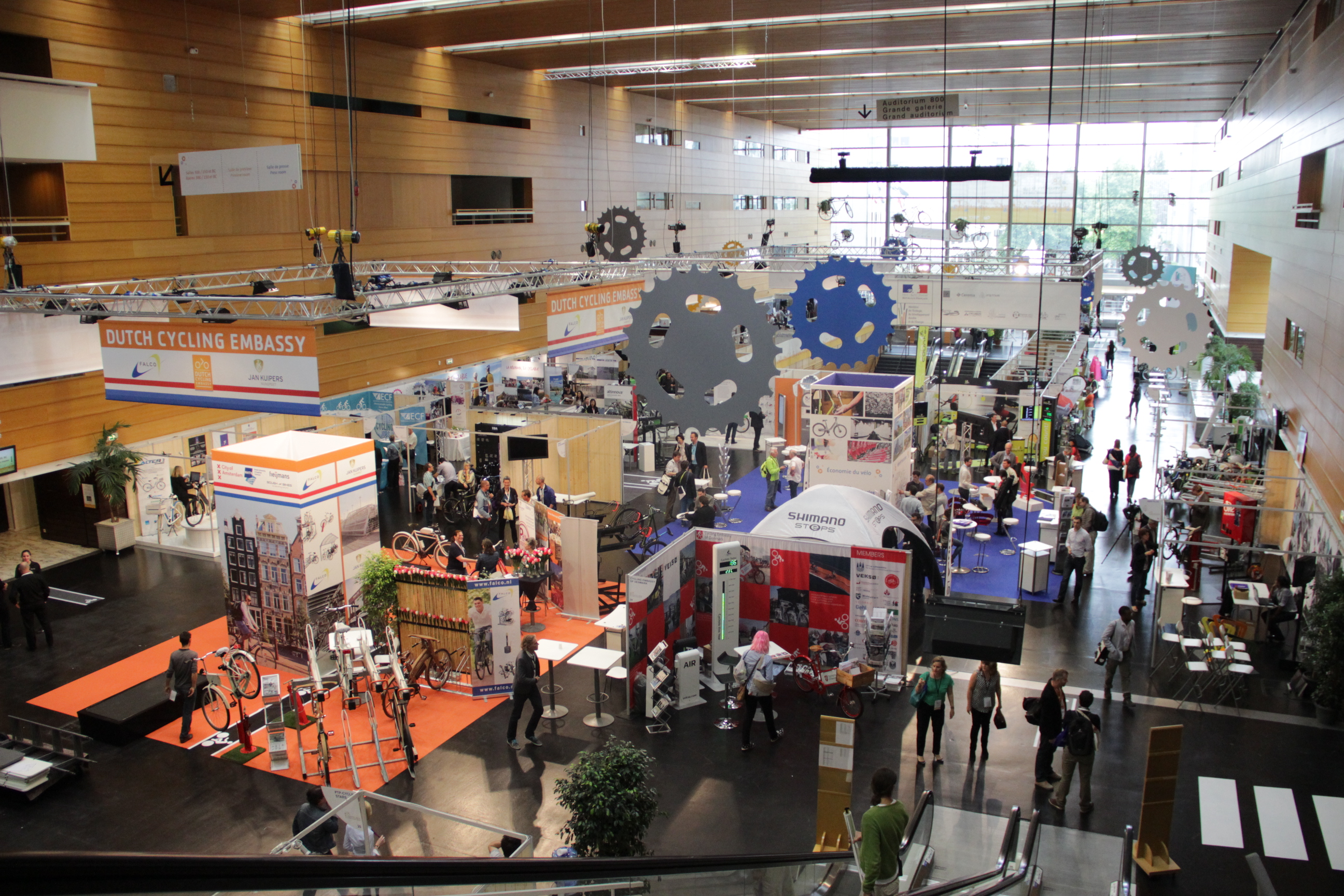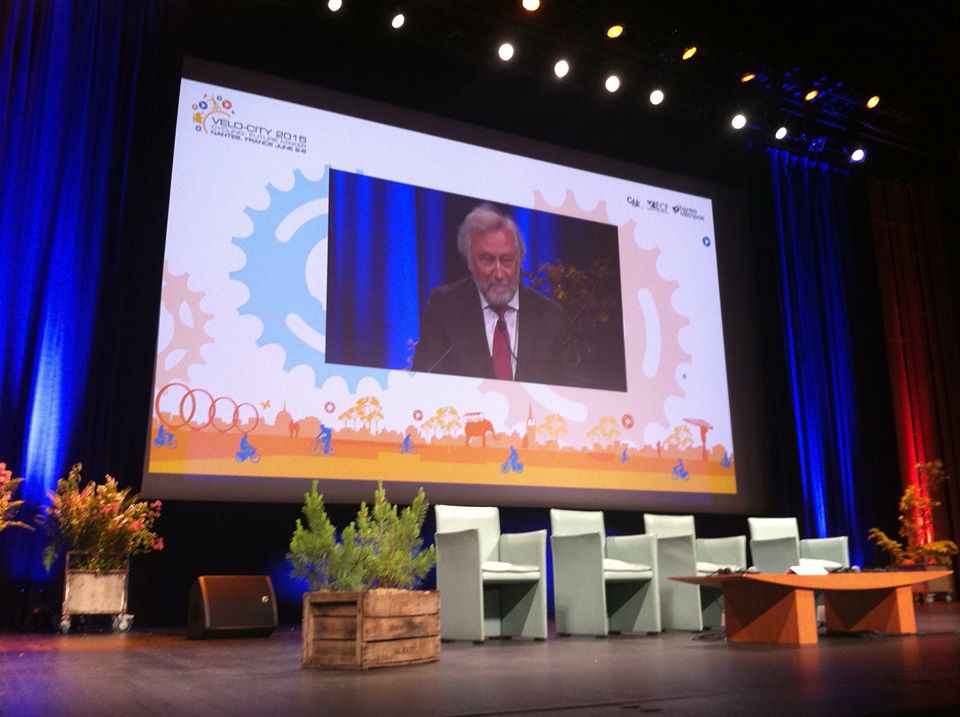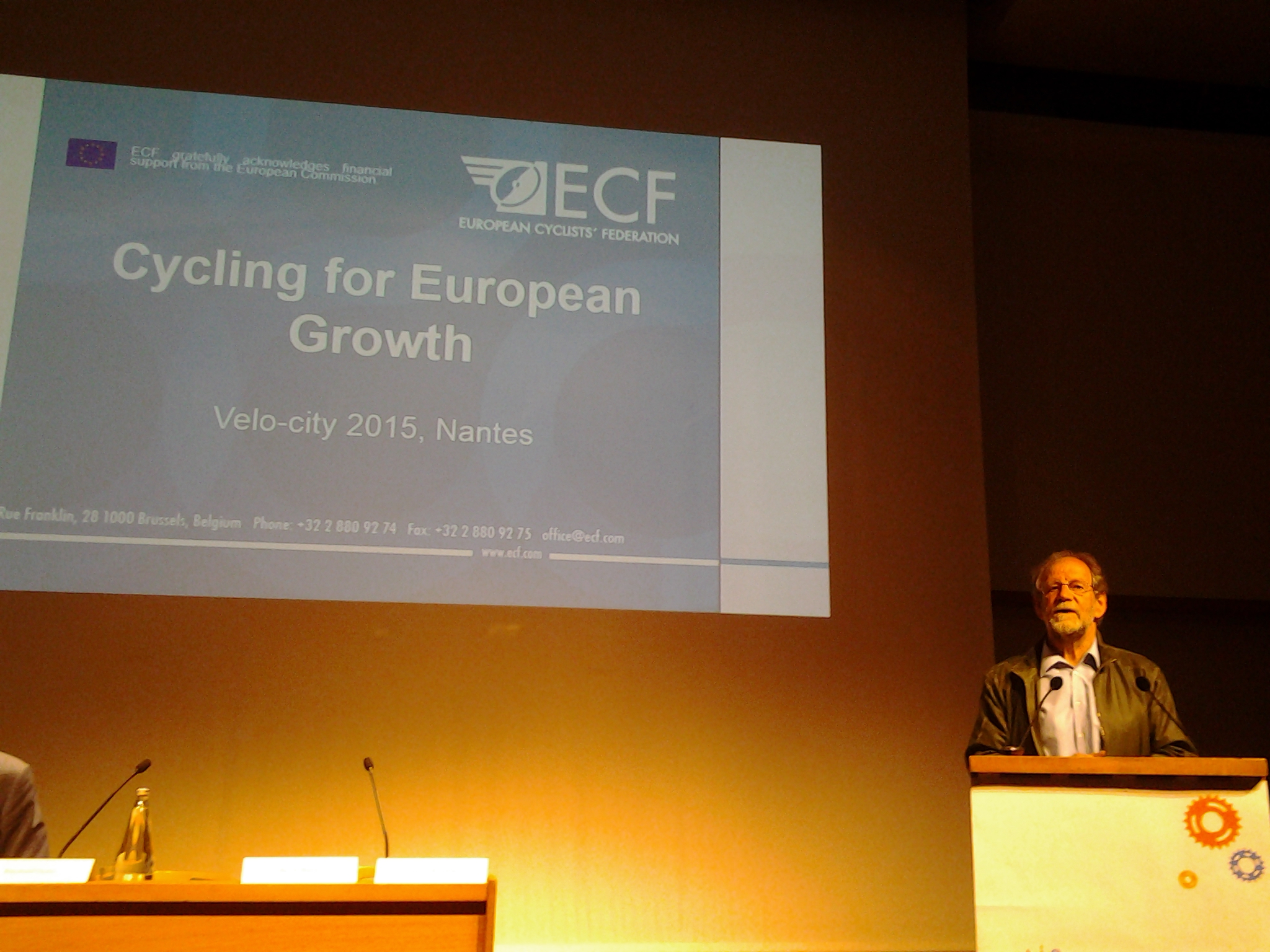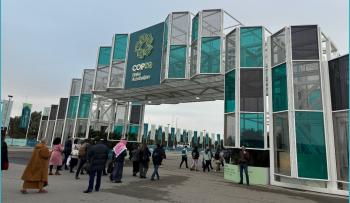
Velo-city 2015 Day 2 round-up - Wednesday, 3 June
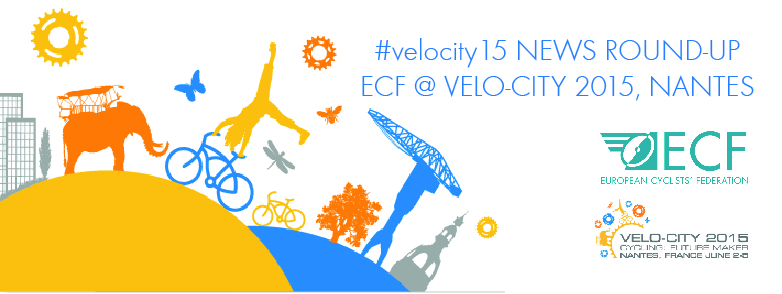
The second day of Velo-city 2015 Nantes has been busy and exciting, we are happy to present you our second round-up from Wednesday.
To keep you up-to-date on all the most relevant news from the world’s largest cycling convention, we will be writing you one news section with daily highlights each day for the rest of the week. This is a news digest – click the on the links if you’re looking to follow the action more closely or on our special Live Page and, naturally, on social media.
Here is a selection of what’s been happening at #velocity15 on Wednesday, 3 June:
- We are all future makers
- Opening Plenary - Cycling Towards COP21
- Velo-city Cycling Industry Day
- Infrastructure: Innovation, Parking Solutions and Attractive Design
- Change the Rules! Promoting Cycling with More or Less Regulation
- Bike Parade
We are all future makers
Velo-city 2015, the world’s biggest cycling conference, kicks off in Nantes, France with a wide-ranging programme that covers all cycling related topics from cycling infrastructure to cycling culture. This event gathers over 1500 delegates from more than 60 countries to discuss the future of cycling setting a new record in terms of participation.
You can access the full Press Release here.
Opening Plenary - Cycling towards COP21
Velo-city 2015 Nantes is a major event leading up to the COP 21, to be held in Paris in December. Nantes, European Green Capital 2013, has gained recognition for its ongoing commitment to sustainable development and in particular its pro-cycling policy. The Opening Plenary of the 5th annual Velo-city conference welcomed over 1200 delegates from all over the world. During the Opening Plenary they were addressed by several high profile speakers such as ECF President Manfred Neun, and Johanna Rolland, Mayor of Nantes. Violeta Bulc, European Commissioner for Transport, also participated in the Opening Plenary through a video message in which she said that cyling does not yet have the priority which it deserves. The general consensus seemed to be that cycling still holds a huge amount of unlocked potential for the future.
COP 21 is a major theme during this year's conference. What are the messages voiced at Velo-city Nantes to the world community on transport, cycling and sustainable development at a time when France plays a crucial role as the host country of the COP21 on climate change in December and the year the United Nations are adopting the new Sustainable Development Goals? In the session especially dedicated to the COP21 held on 3. June Julie Learnow, Vice-President of Nantes Metropole, Ronan Dantec, Senator of Loire-Atlantique, Lena Malm Lord Mayor of Goteborg, Frederic Baverez, President of Effia Transport and Bernhard Ensink, Secretary General of ECF and Velo-city series Director, gave a good overview of the work being done on this topic.
Read more about the Velo-city 2015 Opening Plenary here.
Velo-city Cycling Industry Day
The second day of the Velo-city was full of industry-related sessions and networking events which can all be found in the Velo-city Industry Day Programme put together by ECF. The link between cycling industry and advocacy is stronger than ever and success in one field benefits the other creating positive synergy in advancing cycling.
The plenary session "Cycling for European Growth" highlighted the economic benefits of cycling (employment, tourism, industrial activities, etc.) from a European policy perspective. Although the benefits of cycling are widely recognized a lot still remains to be done. Michael Cramer, Chair of the Committee on Transport and Tourism of the European Parliament, said: "There is no lack of infrastructure, there is lack of political will". Economic arguments are important in ifluencing that will. "Economics is the mathematics of politics if we wish to have influence in modern society. We all need to become economists in order for cycling to grow up", said ECF's Development Director Kevin Mayne. A booming industry gives cycling advocacy many strong arguments to promote cycling on policy level but the relationship is mutual: "We need more support in terms of regulation, data, information and projects to promote bikes and e-bikes", noted Raymond Gense, Director Future Technology & Public Affairs at PON Holdings.
Similarly, the session called "Bicycle Markets and Advocates" discussed the role of industry in developing cycling. Infrastructure and bike sales numbers go hand-in-hand and lobbying for better infrastructure is also in the interest of the industry. According to Vicky Yang, CEO of the Cycling Life Style Foundation, for example bike sharing systems have been proven to have a positive influence on bike sales. "Infrastructure costs money and the industry should lobby politicians", stated Claus Bondam, CEO of the Danish Cyclists’ Federation.
Not just manufacturers but also service providers were present at nantes. For example, in the time-trial session "Services: Keeping you Pedalling" the participants were presented a selection of services that make everyday cycling easier. Speakers took the audience backstage of the creation and implementation of such services from business plans to results.
Infrastructure: Innovation, Parking Solutions and Attractive Design
Innovative approaches in road design make cycling infrastructure attractive for bikers. Speakers from cities and engineering, consulting firms discussed possibilities how design could make more people cycle. "Not only should infrastructure be safe, convenient and direct, it also needs to respect the human dimension", said Stefan Bendiks, Director of Artgineering, in one of the sessions "Infrastructure: Build it and they will come". He gave Copenhagen as an example: "Copenhagen introduced the term “Conversation lane” - a lane allowing people can cycle abreast at normal speed and talk to each other".
Speakers from cities and engineering, consulting firms discussed possibilities how design could make more people cycle. "Not only should infrastructure be safe, convenient and direct, it also needs to respect the human dimension", said Stefan Bendiks, Director of Artgineering, in one of the sessions "Infrastructure: Build it and they will come". He gave Copenhagen as an example: "Copenhagen introduced the term “Conversation lane” - a lane allowing people can cycle abreast at normal speed and talk to each other".
Parking facilities are one crucial points in cycling policies for beginner cities as well as for the more advanced cities. Indeed, whether you want to encourage cycling or whether you already have a massive flow of cyclists to manage: parking is still an issue. Delegates and speakers identified how to convince of the necessity of building high capacity and high quality parking facilities.
In addition, four speakers from around the world presented their innovative approaches applied to cycling infrastructure design, such as bridges or cycling paths.
Change the Rules! Promoting Cycling with More or Less Regulation
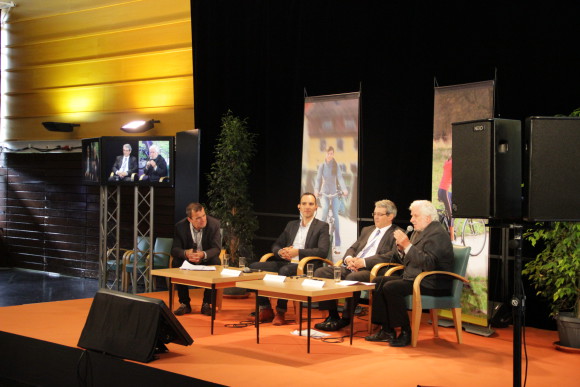
Journalist Vladimir Vasak, hosted the "Change the Rules!" -session at Velo-city 2015 with Timothy Papandreou, SFMTA's Strategic planning & policy director, Gilbert Perrin, President of the European Greenways Association and Dominique Lebrun, Inter-ministerial Coordinator for Cycling Development of the Ministry of Ecology, Sustainable Development and Energy.
 Monsieur Perrin spoke about the importance of enforcement of road rules and how it doesn’t matter how well put together the rules are for road users, if there is no proper enforcement they will not work.
Monsieur Perrin spoke about the importance of enforcement of road rules and how it doesn’t matter how well put together the rules are for road users, if there is no proper enforcement they will not work.
All speakers saw the need for regulations and road rules to cater for cyclists but also spoke about the need to allow experimentation by cities and local authorities. This was particularly true in federalist areas where there is often a lack of communication on the needs of city citizens from the national level. Mr Papandreou spoke about the problems that San Francisco had trying to adapt their cycling road safety innovations within the federal road regulations.
Cities were the drivers of innovation said Monsieur Lebrun and they should be allowed to experiment and pioneer new in innovative solutions to getting people cycling. He said that national policies should deal more with funding while allowing the local level and cities a certain amount of freedom to experiment; such as contraflow cycling or right turn on red lights. This can then be put in place at the national level.
Mr Papandreou saw the importance of the bicycle for children, particularly in gaining their independence and engaging with the adult world, and Monsieur Lebrun spoke about how it is good that Governments around the world are realising the importance of changing the paradigm for car dominated city centres to environmentally friendly, healthy cities to improve the quality of life for citizens.
Finally the panel spoke of the fall of car use and people getting their car license which is falling in San Francisco and France, particularly among younger people, and about the ‘sharing generation’ turning to car and bike share. The impacts on cycling could be fantastic with regards to cycling numbers but warned that safety also needs to be a priority.
Bike Parade
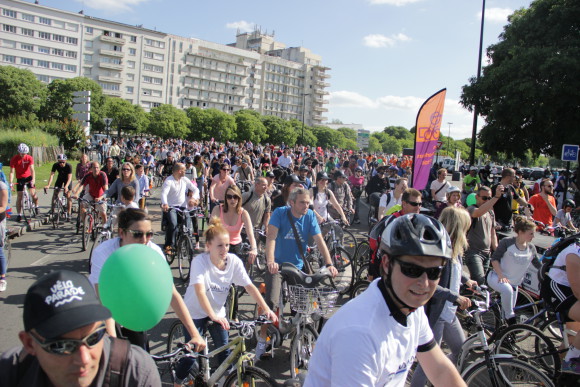
What’s so special about Velo-city? The answer is… the traditional “bike parade” which brought together 7.000 people for a festive bike ride though the city of Nantes.
Nantes Metropole has entrusted Le Voyage à Nantes with the organisation of the parade that set the tone of what makes Nantes an outstanding place: creativity, uniqueness and conviviality!
- Log in to post comments
Contact the author
Recent news!
Upcoming events
Contact Us
Avenue des Arts, 7-8
Postal address: Rue de la Charité, 22
1210 Brussels, Belgium

